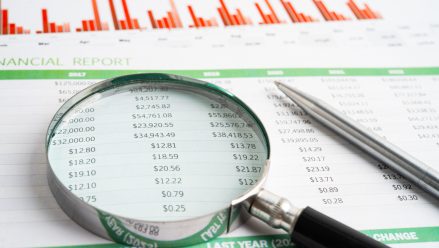A sportsbook’s hold is a measure of the money the sportsbook wins on the bets it takes. The higher the hold, the more bettors are losing. And the more bettors are losing, the more money operators are making.
At most regulated U.S. sportsbooks, consumers are losing at a high percentage on a range of “carnival-style” products designed to favor the house, Sporttrade CEO Alex Kane said Wednesday during a webinar.
So why, he asked, do U.S. regulators tout high hold, when they claim to prioritize consumer protections?
Kane said during a “The New Normal” webinar titled “Sporttrade and the CFTC — Can Prediction Markets Coexist with Tribal Gaming?” that state gambling regulators should be looking for just the opposite — lower hold and more equitable products. He believes that exchange-style wagering would do a better job of making money for states and protecting consumers.
“You’ve got these states that come out with press releases that almost in a way tout the higher and higher and higher hold percentage of their licensed sportsbooks,” Kane said. “And this is very interesting regulatory approach, regulatory understanding. … Juxtapose this with the Securities Exchange Commission, the SEC, and the Commodity Futures Trading Commission, the CFTC, approach that same topic of consumer fairness, competition, integrity, efficiency, cost. Why is there such a crazy disparity, where in one realm, in the gambling realm, there is almost an expectation of the operator holding more and more and more?”
A pioneer of stock-market style betting
As the conversation continues about how — or if — prediction markets, exchanges, or other CFTC-regulated offerings fit into the current sports betting marketplace, Kane said these products are a “niche” market. But he also believes that they create a more fair landscape for bettors.
Kane was among those bringing the idea of stock-market-style sports betting to the fore at the start of this decade. When Sporttrade rolled out, it did so with a product that is remarkably similar to what Kalshi is currently offering.
But regulators across the U.S. mostly balked, and he ended up repositioning his company as a more traditional sportsbook in some jurisdictions. Since then, he’s been educating regulators and other stakeholders about how a platform like Sporttrade, which is able to offer peer-to-peer betting based on percentages rather than odds, can not only fit into the current industry, but is potentially the future of it.
“I would contend that there is a far-less-than-there-should-be focus from the regulator’s perspective in consumer protection as it pertains to the cost of each sports bet,” Kane said.
“And how could we be putting out press releases as states that tout that customers are losing more and more and more money as a function of what they bet? That is so backwards from the way it should be. It should be that customers are paying less and less and less as a function of what they are betting because that, in and of itself, is the best form of consumer protection.”
States, CFTC tax differently
Every time a state proposes or rolls out a tax increase, operators say the cost of it will force them to spend less on technology, offer fewer betting markets, and make other cuts that will hurt the consumer. So far, lawmakers in Illinois and Ohio have drastically raised wagering rates. And currently, Ohio lawmakers are contemplating adding handle tax to the existing gross gaming revenue tax, which will place an additional burden on operators.
CFTC-regulated exchanges are taxed differently. Certainly — and this is a key point of contention in the conversation about how and where exchanges fit in — states don’t benefit from these federally regulated platforms. But the cost of doing business for the consumer is less.
Sporttrade is currently licensed in five U.S. states but is not licensed by the federal government. Kalshi, conversely, is licensed by the CFTC and not by states. Consumers in any U.S. state can currently buy event contracts, including for sports, on Kalshi, though some state regulators have begun pushing back.
State governments charge operators taxes ranging from 6.75%-51% on GGR while exchanges — or SEC- and CFTC-based platforms — charge operators a percentage of net profit, which would be smaller number.
The cost of doing business for sports betting operators has been a moving target. Not only have taxes gone up in Illinois, Maryland, and Ohio, lawmakers in Louisiana and North Carolina are currently considering increases. And the tax structure in Tennessee changed — operators were initially taxed on GGR, but were required to have at least a 10% hold. The state is now the only one that taxes operators on handle. Tennessee is is taking in more tax dollars under the new format.
Handle taxes “will have the impact of making operators offer more of those high-hold sort of disingenous, more toxic products that’s pushed by the legislators and the regulators, where on the opposite end of the spectrum, the SEC and the CFTC have taken the opposite. … We want what’s best for the customer, we want costs to go down, we want more competition,” Kane said.
“If we actually care about consumers and consumer protection, we can’t be touting a higher and higher hold percentage. Impossible. It is impermissible. It does not compute. So, yes, I do think that exchanges in a lot of ways, if regulated by a more federal body that understands marketplaces, is going to find itself under a regulatory purview or umbrella that innately has regulators at the helm that want there to be more competition, more transparency, and lower costs as opposed to the lottery-based, carnival-based, high-hold, more dangerous sports betting product where [existing traditional] operators are trying to actually do the opposite. They’re trying to hold more.”







